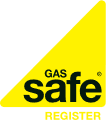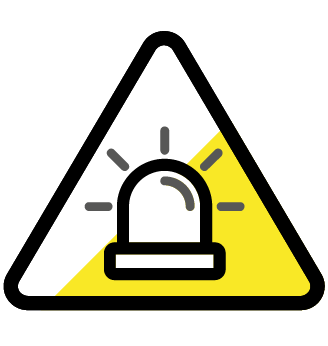LPG Gas safety
Whether you’re camping at a festival, taking to Britain’s waterways or enjoying a caravan break, remember to follow these simple safety measures when using LPG
It’s also worth noting that if you have a business that operates any LPG appliances, you’ll need to adhere to LPG safety regulations under the Health and Safety at Work Act 1974.
What is LPG?
Liquefied petroleum gas, or LPG, such as propane or butane, is a flammable fuel that’s used in heating appliances, cooking equipment, and vehicles. You’re likely to come across LPG in camping equipment, BBQ's, and patio heaters, and it’s also frequently used in dwellings like caravans, cabins, boats and rural homes.
Remember, if you rent out your dwelling - even if it’s just a short-term let - you’re classed as a landlord with legal duties when it comes to liquid petroleum gas safety - and gas safety in general.
Fixed appliances
You’ll need to ensure that all fixed LPG gas appliances are serviced and safety checked every year by a Gas Safe registered engineer. It’s important that your engineer is qualified to work on your property type and the appliance itself. For instance, if you’ve got an LPG cooker on your boat, the engineer will need to be registered to work on boats, cookers and LPG.
Whether you’re buying a brand-new or replacement gas appliance, check that it’s suitable for its intended location and the type of gas that will be used. Make sure your engineer who’s carrying out the installation is Gas Safe registered too.
We’d also highly recommend installing an audible carbon monoxide alarm. Carbon monoxide (CO) is an extremely poisonous gas, and it’s especially dangerous because you can’t see, smell or taste it.
Portable appliances
If you’re using a portable appliance with an integral LPG gas canister, follow our LPG safety checklist:
- Make sure you check the equipment’s condition before each use. If the gas canister seal looks damaged, or if the canister is rusty or deteriorated, don’t use it
- Familiarise yourself with the operating instructions before use
- Ensure you’ve got the right type of gas canister for your appliance and that it’s being inserted correctly
- Don’t force the gas canister retaining lever into position; this could damage the mechanical linkage and pressure relief device
- Don’t try to light the appliance if you’re having problems with the lever, or if you smell or hear gas escaping. Instead, call a qualified Gas Safe registered engineer to check it’s safe
- If you’re on a boat, stow any used or unused canisters (and the stove if it has a canister inserted) in a self-draining gas locker, or on an open deck where any escaping gas can flow overboard
Guidance on gas cylinders
Stay safe when you’re using gas cylinders with our LPG gas cylinder safety tips:
- If possible, we’d advise installing a gas detection system
- When you’re changing cylinders, make sure all cylinder valves or gas taps are turned off before disconnecting - and only change a cylinder in the open air
- Don’t over-tighten joints
- Don’t throw away used cylinders; return them to your supplier. You can consult Liquid Gas UK or your nearest stockist if you need more information
- On a boat, make sure you regularly hand-pump bilges (the enclosed areas at the inner bottom of the hull) to remove potential low-lying vapours
- LPG cylinders should be secure and stable and:
- should not be stored in a basement
- should be stored and used in a ventilated area
Hoses
Hoses are used to connect regulators to gas cylinders. It’s important to make sure you treat these carefully, because they can be a vulnerable part of a gas installation:
- Only use rubber hoses marked BS 3212, or stainless steel convoluted hoses marked EN10380
- If you’re connecting a hose directly to a cylinder, or if the outlet pressure of the regulator exceeds 50 mbar, use a hose marked ‘High Pressure LPG’
- Ensure the length of the hose is as short as possible, but not so long that it can’t be pulled tight
- Replace any hose that’s damaged or showing signs of wear, stiffness, or cracking
- Make sure you keep hoses clear of any hot surfaces
Find a gas safe engineer today
Using our Find and engineer search functionality you can find an engineer who is competent to work on LPG appliances.
Find and Check a Gas Safe Registered Engineer
Related Help Topics
Useful Downloads
-
BBQ & camping safety
-
BBQ poster
Featured Content
What to do in a gas emergency
Learn what to do in a gas emergency and who you should contact.
Carbon Monoxide Poisoning
Carbon monoxide or CO poisoning is one of the major risks of an unsafe gas appliance. But what is it and how can we guard against it? Find out more.
Frequently Asked Questions
A list of FAQs on gas safety and the Register in general.



